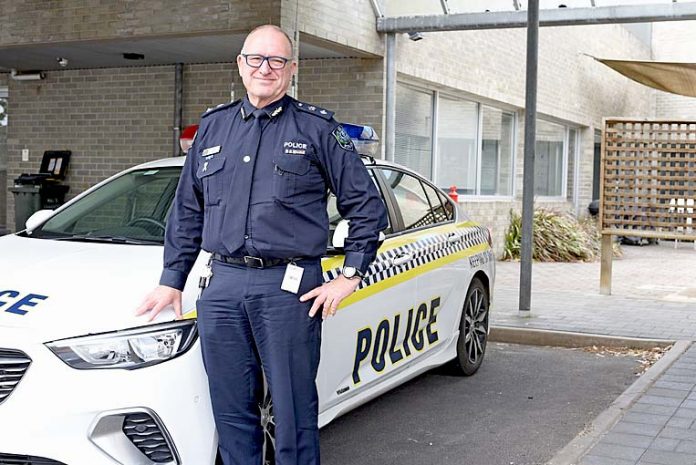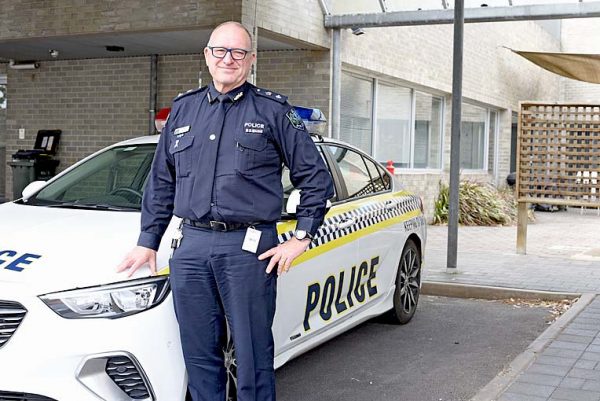

THE region’s police hierarchy has welcomed the “broader” release of information flowing from the Department for Correctional Services regarding inmate discharges from the Mount Gambier Prison.
Limestone Coast Police superintendent Phil Hoff said the department issued emails to notify police ahead of discharges from the Moorak-based correctional facility.
He said this information included the method of transport, their “intended” management strategy and place of destination.
In an interview with The Border Watch, Supt Hoff said a “broader network” of people were now seeing this information.
He said this was now providing “greater awareness” to authorities on the movement of released inmates.
“The dissemination list is broader as opposed to the quality of the information. I imagine it is the same information, but there are just now more people seeing it in Mount Gambier,” the high-ranking police official said this week.
“A number of key people in my management team now get the information as well as our intelligence officers.
“We have a tactical meeting every morning where we talk about the key issues and we can identity people who may be an interest to us.”
Regarding the additional transport measures swept in by the department, Supt Hoff welcomed a more secure network of transport.
“If we can make it a more secure network for the transport of prisoners, that is a good thing,” the superintendent said.
According to Supt Hoff, released prisoners destined to be released “back to Adelaide” were either taken by taxi to the bus depot or taken to a motel where they were housed overnight and then picked up in the morning to the bus depot.
He revealed released inmates were not usually accompanied to ensure they boarded the bus.
“We work closely with Correctional Services. They have been providing information to us so we are aware about what is going on,” Supt Hoff said.
While police now had “better vision about what was going on”, he said police had not noticed a “huge issue” connected with prisoner releases.
“From time to time, there is crime associated with people who get out of prison – that is an unfortunate sign of the times,” Supt Hoff said.
“But by in large, people being released from prison do not cause us a problem initially.”
While police were told how released prisoners were transported, he said police did not have a “lot of insight” into this process.
“I do not actually get any feedback because rarely are we involved.”
Meanwhile, Supt Hoff described the discussions under way between the Corrections Department and the SA Courts Administration Authority over “unplanned” prisoner discharges as a positive step.
“The problem that is being created for us is the use of audio visual links will see a prisoner at Mount Gambier Prison appear in a matter in Adelaide by technology and if that person is granted bail then the prison must release them forthwith.
“There is no opportunity to actually plan how that may occur.
“That is a disadvantage for the prisoner and a disadvantage for everyone – there is no opportunity to plan and make arrangements.
“Once the magistrate has granted bail, the prison must release them.”
Overall, he said these were “issues” were under the realm of the Department for Correctional Services and not police.
“Ultimately, if there are failings in the system it may become a police problem, but we do not see a great deal of it.”







